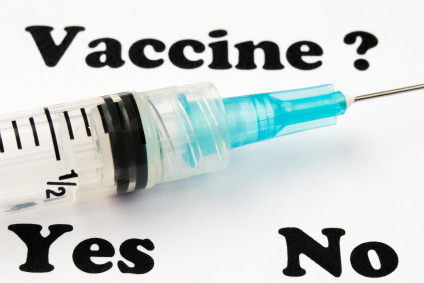While the US state of Vermont considers ending parental choice over childhood vaccinations, new research adds weight to arguments that vaccines can cause autism. Clearly, vaccine choice is vital – but will the new evidence sway the vote?
The power of ‘herd immunity’
To many people, the very premise of the Vermont debate may seem illogical. Aren’t parents guardians of their children? And as such, isn’t making the crucial decision concerning vaccination not only a right – but an obligation? However, it is mandatory for US children to be vaccinated before they can go to school. Most US states allow exceptions on the basis of religion, and 17 – including Vermont – also allow exemptions based on personal beliefs.
But vaccine advocates want to go even further. They aren’t only utterly convinced that vaccines are both effective and safe; they also put their faith in the highly plausible and scientific sounding theory of ‘herd immunity’. Public health officials point to increased rates of whooping cough (pertussis) in Vermont and elsewhere as evidence that vaccine exemptions lead to resurgence of childhood disease, conveniently ignoring the vaccine’s limited effectiveness. As of today, the exemption hangs in the balance: the Vermont Senate has voted to revoke the philosophical exemption, while the House of Representatives has voted to keep it.
Autism link strengthened
Herd immunity is only a theory, as is the idea that certain vaccines can cause autism. Further evidence of a link came with the recent publication of a pilot study, showing that monkeys given the complete US vaccination schedule exhibited autism-like brain developmental changes.
Choice is key
It is becoming clearer all the time that vaccines are not as safe as the authorities pretend they are – and that, at the very least, parents must be able to choose whether to expose their children to the associated risks. We can only hope that those voting in Vermont will look at the evidence and come to the same conclusion.








Comments
your voice counts
15 May 2012 at 8:37 pm
Herd immunity has never been proven for pertussis vaccine. In fact, there is handful of resource that proves, that vaccine can in fact worsen the situation, because it just reduces symptoms so that an ill person dosen't consider himself ill enough and dosen't consider isolation.
In natural immune response, IgA and IgM are the first line of defense, however vaccination dosen't produce these antibodies. It produces IgE - allergic antibody that cannot help body to fight the pertussis. And of course serum IgG antibodies, that are (by some studies) too slow in effect in the site of infection, so that the body misses the crucial time of beginning of infection.
Moreover, the only effective vaccine antigen is pertussis toxin, because serum antibodies (IgG) are only appropriate against systematic poison, that pertussis toxin is. Pertactin and filamentous haemagluttinin are proven ineffective, because bactery is well capable defending itself by production of BrkA and adenylate-cyclase toxin, thus overriding any possible efect of PCT and FHG antibodies. These vaccine-induced antibodies can even worsen immune response.
Since pertussis toxin is not vital for successfull infection, and dimnishing the content of pertussis toxin in blood dosen't lower the bacteria count or illness duration, the vaccine cannot affect these parameters too. Neutralising the pertussis toxin can be beneficial only in reducing severity of disease. This effect is estimated to last only about 4-7 years in children and even less in adults.
Moreover, there is "primary antigenic sin" - the vaccinated person tends to react to infection only in the scope of vaccine antigens, and has damaged capability of producing other antigens related to illness, other than it has learned from vaccination. This can further reduce the body capability of effective protection against infection.
Last but not least, pertussis-imunized person can be more susceptible to other pathogens such as bordetella parapertussis, because of some poorly researched immunologic effect of vaccine. There is also suspection of fatal invasive infections because of immune damage by vaccine.
In summary, vaccine can only lessen the discomfort of illness, and only for few years after vaccination, and only in vaccinated person. It cannot lower the transmission rate and probably can even enhance it.
See Weingart 68 7175, Srugo 6 526, Cherry 38 502, Cherry 17 741, Hewlett 16 S78, Long 277 2017, Goodwin 58 3445, Carbonetti 73 2698, Pittman 3 467, Weiss 57 3757, Storsaeter 7 637 etc...
Your voice counts
We welcome your comments and are very interested in your point of view, but we ask that you keep them relevant to the article, that they be civil and without commercial links. All comments are moderated prior to being published. We reserve the right to edit or not publish comments that we consider abusive or offensive.
There is extra content here from a third party provider. You will be unable to see this content unless you agree to allow Content Cookies. Cookie Preferences